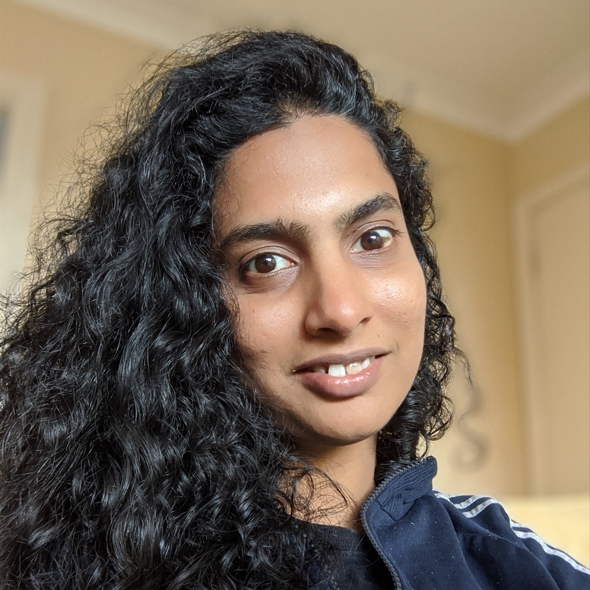Editorial - December 2023
Newsletter
Charting the course to a sustainable work culture in research
The discussion surrounding work-life balance in research environments often highlights academia’s inherent challenges: intense competition, performance pressures, and precarious long-term job security, which are prevalent concerns in many regions. Yet, the concept of 'work-life balance' itself implies a misleading conflict between professional success and personal fulfillment. Achieving academic milestones frequently seems to necessitate personal compromise, as if sacrifices are unwritten requirements for triumph. This mindset leads to neglecting everything from relationships to financial well-being in pursuit of the next academic achievement(s)…be it that elusive big publication, funding, or tenure. Despite the portrayal of research and academia as objective pursuits separate from personal life, the reality is that the personal lives of researchers are deeply intertwined with their scientific work.
The Conference/Volunteering Activities Commitment Dilemma
In research, commitment to conferences, volunteering activities, and university service are often seen as essential for our career development, offering opportunities for networking, skill enhancement, and community contribution. The dilemma is that while these activities can be enriching, they demand time and energy that might otherwise be spent on personal pursuits. For researchers, particularly those juggling family responsibilities, this can lead to a taxing schedule. The unspoken expectation that one must participate in these activities to be considered dedicated or successful, often leaves underrepresented communities at a further disadvantage.



Addressing this dilemma requires a multifaceted approach. Institutions and departments can play a crucial role by promoting a culture where quality of service is valued over quantity. The provision of support for time management and childcare, coupled with the acknowledgment of these commitments in workload calculations is also crucial. Researchers themselves can benefit from setting personal boundaries, being selective about which activities align best with their goals, and learning to say no when necessary (1). This shift in perspective is essential to allow for a more sustainable and fulfilling approach to professional development.
Remote Working after the Post-Pandemic:
The post-pandemic era has created a new dynamic, with remote working becoming more prominent, opening new opportunities and challenges (2). Researchers can save time on commuting, enjoy a more comfortable work environment, and have the opportunity to integrate work with personal life more seamlessly. However, remote working also blurs the traditional boundaries between work and home. The convenience of working from home often results in extended work hours, as the distinction between 'office time' and 'personal time' becomes less clear. This situation can lead to a sense of being 'always on' and negatively affect mental health and overall well-being.
To address these challenges, academic institutions need to establish clear guidelines and support systems for remote work. It is important to set expectations for availability, ensure access to necessary resources, and promote a culture that respects personal boundaries. Institutions can also provide training to help researchers develop strategies for effective work-life separation in a home environment. Furthermore, creating virtual spaces for interaction, collaboration, and socialization can help mitigate feelings of isolation and maintain a sense of belonging within the community.
Family Life: Is There ever a Right Time to Start a Family?
The question of when to start a family can be likened to an endless rollercoaster ride for many researchers, oscillating between ‘anytime’ and ‘never’. One of the most significant challenges in researchers’ careers is achieving a sense of stability. The ongoing quest often puts additional pressure on life decisions, such as starting a family. For many, the ideal time seems perpetually out of reach, as their career paths are riddled with uncertainties and demanding commitments.
Instead of attempting to find correct and universally inclusive answers to the question of when to start a family, a shift in perspective might be beneficial. Why not rephrase the query? Consider asking: Should it be a struggle to define the right time to start a family? The answer might lean towards ‘Maybe yes’, but only for worthwhile reasons that resonate deeply with our personal needs and unique perspectives on life and well-being. To facilitate a safe journey for researchers in this aspect of life, it becomes imperative to issue a call to action for institutions, funding bodies, associations, and any other influential entities capable of enacting policy changes and advancing the research culture. The goal should be that customized and inclusive support is readily available for any researcher desiring to start a family, irrespective of their career stage or individual characteristics.
Ableism in Research
Individuals with disabilities are significantly underrepresented at all levels of academia, from undergraduate studies to advanced research positions. The root of such disparity lies in the ableist attitudes prevalent in research toward disability, which create barriers to reasonable accommodations (3). The situation becomes even more challenging for those with invisible forms of disability, such as chronic illnesses or neurodivergent conditions.
The pandemic has further highlighted numerous issues faced by individuals suffering long-term consequences from infections and illnesses. It underscores an urgent need for change. Academic institutions and governing bodies are called upon to develop and implement policies offering robust support and flexibility. Policies need to focus on eliminating barriers and promoting equal access, participation, and advancement for individuals with disabilities within institutions. Proactive measures are essential to ensure a more inclusive and equitable environment for all.

Institutional Policies to Foster Work-Life Balance:
Robust structures are necessary to support the diverse needs of the research community. Institutions should consider implementing flexible work arrangements to accommodate varying life stages and responsibilities, such as parenting, caring for elderly relatives, and chronic illness. Options might include part-time work, job-sharing, flexible scheduling, and the provision of leave for family and health-related matters. Fostering a culture where taking leave is not only permitted but encouraged, without fear or career repercussions, is essential.
Supporting mental health and well-being is another crucial area. It involves ensuring access to resources such as counseling and maintaining reasonable workloads. Transparency in communicating about available support policies is key, so all members of the academic community are informed about their rights and the support they can access. Regular policy reviews are essential to meet the evolving needs of researchers and to address any implementation gaps. By adopting comprehensive policies, institutions can demonstrate that achieving a work-life balance is not just feasible but a fundamental priority.
Work within the MCAA to Foster Equity, Diversity and Inclusion:
Diversity is essential to form dynamic and successful teams. However, researchers from diverse spheres still encounter obstacles that hinder access to leadership positions and compel them to work excessively, putting their work-life balance at higher risk. Significant efforts are required to better embrace and celebrate differences among research staff members. Researchers, especially decision-makers, should be aware of unconscious biases and actively work to overcome them efficiently. Organizations dedicated to research need to update their procedures, adopt an ethos of acceptance, and promote inclusivity.
The MCAA and the Genders, Equity, Diversity and Inclusion (GEDI) Working Group (WG) have been proactively addressing the challenges faced by researchers from different ethnic, gender, socio-cultural/religious backgrounds, and family perspective/status. GEDI WG’s efforts focus particularly on research careers and especially leadership positions, where diverse participation gets more challenging. Through workshops, talks, articles, videos, consultation and public statements, they have been raising awareness of the difficulties encountered along the research/academia pathways. The GEDI WG is actively proposing and discussing potential policy solutions on topics such as starting or having a family, LGBTIQ+ inclusion, disabilities (ResearchAbility), researchers at risk, fairness in AI, responsible brain circulation, etc.
A current activity of the GEDI WG focuses on ensuring that all MSCA fellows work and thrive in a safe environment, where balancing career & family or making plans for a family is a realistic option. This initiative gathers past and present good practices and achievements, plans, and evidence. In collaboration with the Policy and Survey WGs, ReMO, and the MSCA Unit, it aims to develop and utilize these insights to create evidence-based guidelines for all MSCA participating countries.
Conclusion:
The dialogue around work-life balance in research and academia is longstanding, yet a substantial journey remains. The challenges to work-life balance are dynamic and continually evolving. With a deeper understanding of these issues comes the potential to craft effective and impactful solutions. This special issue gives voice to the experiences and struggles within the MCAA community regarding work-life balance, while also highlighting initiatives at various levels to foster a more sustainable work environment. It features the diverse, lived experiences and inspiring stories of researchers from different career stages, countries, and contexts. Remarkable stories highlight the strength and indomitable spirit of our research community, urging the fight for a work culture where members not only survive but thrive. The issue illuminates efforts at personal, institutional, and policy levels to build a more equitable work atmosphere in research. The hope is that these narratives and insights offer readers a new perspective and ignite meaningful conversations. Remember, research is a marathon, not a sprint; every bit of support or insight eases the journey, making each step forward just a bit lighter.
Namrata Iyer
Guest editor
MCAA Newsletter Editorial Board
Polat Goktas
Guest editor
MCAA Newsletter Editorial Board
Magdalini Theodoridou
Guest editor
MCAA Genders Equity Diversity and Inclusion
(GEDI) Working Group
References
Bartlett, M. J., Arslan, F. N., Bankston, A., & Sarabipour, S. (2021). Ten simple rules to improve academic work-life balance. PLoS computational biology, 17(7), e1009124. Retrieved from https://doi.org/10.1371/journal.pcbi.1009124
Dinu, L. M., Dommett, E. J., Baykoca, A., Mehta, K. J., Everett, S., Foster, J. L. H., & Byrom, N. C. (2021). A case study investigating mental wellbeing of university academics during the COVID-19 pandemic. Education Sciences, 11(11), 702. MDPI AG. Retrieved from http://dx.doi.org/10.3390/educsci11110702
Brown, N., & Leigh, J. (Eds.). (2020). Ableism in academia: Theorising experiences of disabilities and chronic illnesses in higher education. UCL Press. Retrieved from https://doi.org/10.2307/j.ctv13xprjr